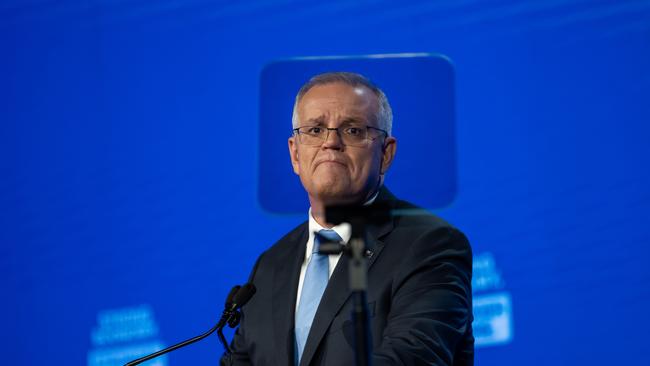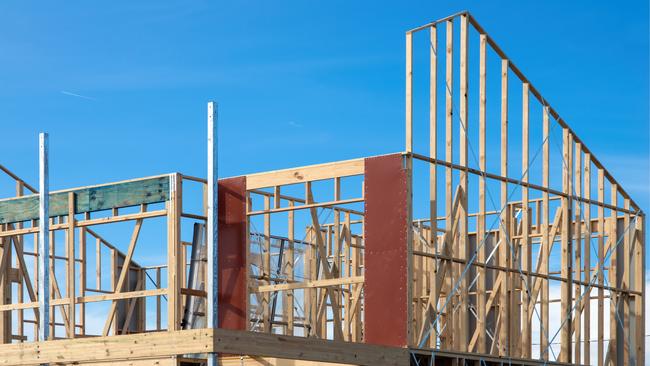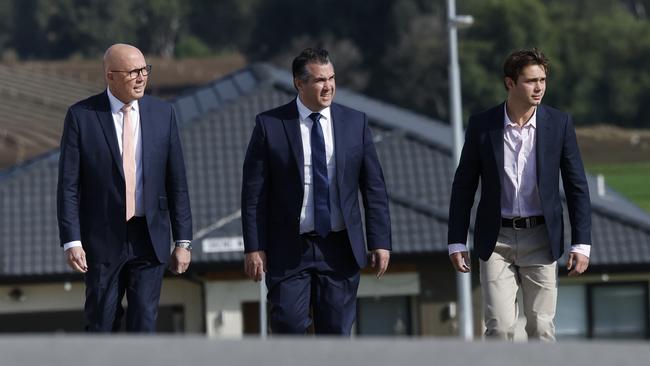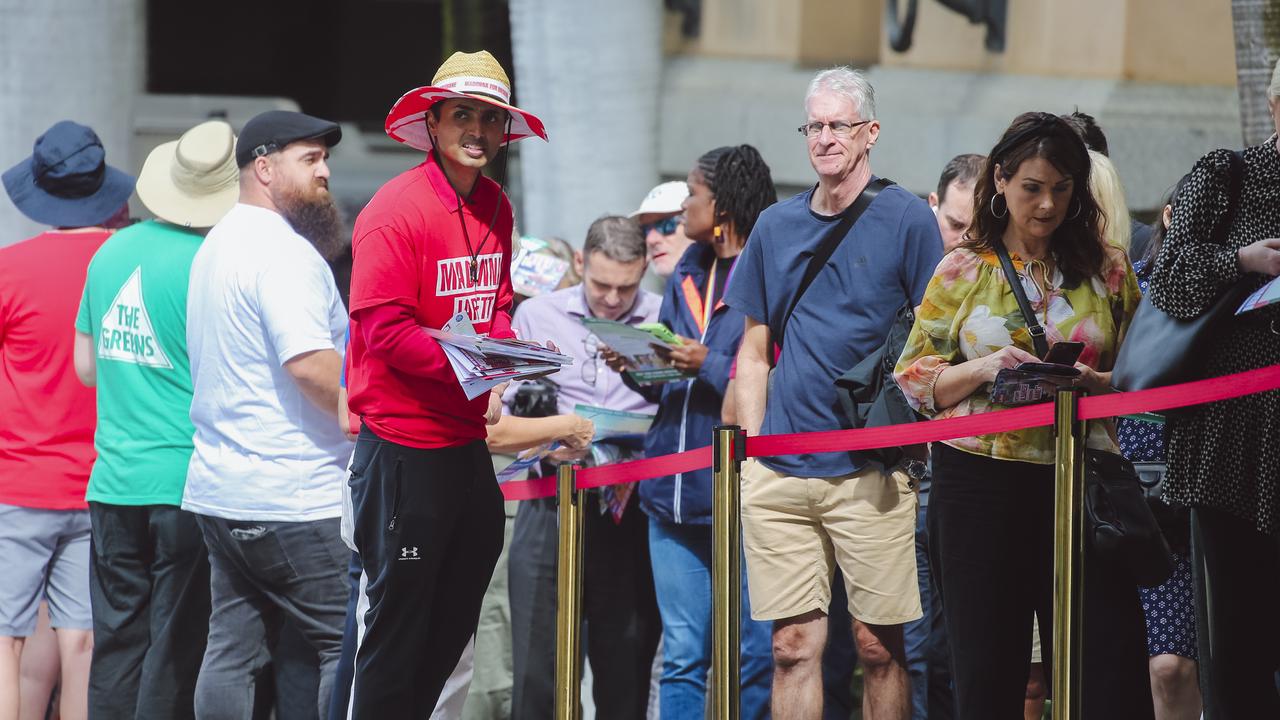Ghost of 2022 hangs over this election’s contest of small ideas
As the campaign approaches and the strategists take over, any hope of grand reform goes out the window as the party attempts to present as small a target as possible, writes James Morrow

What’s the old saying about insanity being when you do the same thing over and over again and expect a different result?
If that’s true, then if the Coalition loses the upcoming election the people responsible for coming up with and deploying their policies might want to question their own grips on reality.
Because where things stand now, things look eerily similar to 2022 when the Morrison government left it too late to release major policy announcements, ran out of runway, and crashed out.
In that election, the Coalition had a policy to let Australians use some of their super to buy a house.
It was a good policy that conformed to Liberal principles: It is, after all, your money, and nothing predicts a good retirement like home ownership.
But for whatever reason, they decided to hold it back and did not announce it until the last week of the campaign at their official launch.

The idea was predictably monstered and ridiculed by Labor, which even wheeled superannuation architect Paul Keating out of cold storage to give it a blast.
And because of the timing, there was no time left on the clock to counter the scare campaigns and naked paternalism of Labor, which always and everywhere thinks it knows better how you should spend your money.

The Liberals’ own review of their subsequent defeat found that leaving major announcements so late meant their agenda “appeared to be limited and unclear to the electorate.”
As a result, “voters, including those acknowledging the Government’s effective performance in managing the pandemic, did not have a clear view of the Coalition’s priorities for another term.”
Does any of this sound at all familiar?
Fast forward to 2025 and the Coalition has left itself a bit more time to sell in policies like a (temporary) fuel excise cut, income tax credits, and mortgage interest deductions.
But not that much more.
Complicating their job is school holidays, Easter, and Anzac Day being all clustered together on the calendar, meaning plenty of voters will spend the next ten or twelve days with their minds on other matters including the eternal question, “are we there yet?”
And thus their strategy to counter Labor scare campaigns about Liberal “cuts” has been, depressingly, to go dollar for dollar on everything from Medicare to housing.
If the spectre of Brittany Higgins and the #metoo movement hung over 2022, the 2025 campaign has been dominated by the “me too” of spending commitments.
This isn’t necessarily a Peter Dutton problem, either.

If anything Dutton, who led a long and grinding campaign against the Voice and turned the polls from 60-40 in favour to 60-40 “no”, has shown himself more than capable of prosecuting a fight in the face of sustained media and elite opposition.
Shadow treasurer Angus Taylor, taken out of the theatre of parliamentary question time, has matched or bested the performances of Jim Chalmers every time they have gone head to head this campaign, revealing the Labor treasurer to be glib and overly reliant on focus grouped attack lines.
Yet without something big and different to sell and the time to sell it, these skills are wasted.
No, this repeating pattern of releasing late, small targets and being left with little in the way of big vision appears more structural.
In opposition in particular (the Coalition did not have this problem in 2022) it is much harder to build an engine room to develop policy.
Various interest groups and think tanks offer up ideas and policy proposals, but by the time the election is on the horizon anything that looks at all grand, or which might be accused of “blowing out the budget” or benefiting “the wealthy” gets left on the shelf.
Thus ideas like properly ending bracket creep (which even Labor sort of admitted was a problem with their 70 cents a day tax cuts) or reducing Canberra’s choking reliance on personal income tax to grow the overall all economy are ultimately deemed too hard.
Then, as the campaign approaches and the strategists take over, any hope of grand reform goes out the window as the party attempts to get through to polling day presenting as small a target as possible.
Both sides of politics are guilty of falling into this trap, which helps explain why this election has seemed so excruciatingly timid and small.
But this is exactly what we don’t need when there is a productivity crisis, an energy crisis, a housing crisis, one trillion dollars in debt, and what is delicately called “global instability” to deal with.
More Coverage
Originally published as Ghost of 2022 hangs over this election’s contest of small ideas





